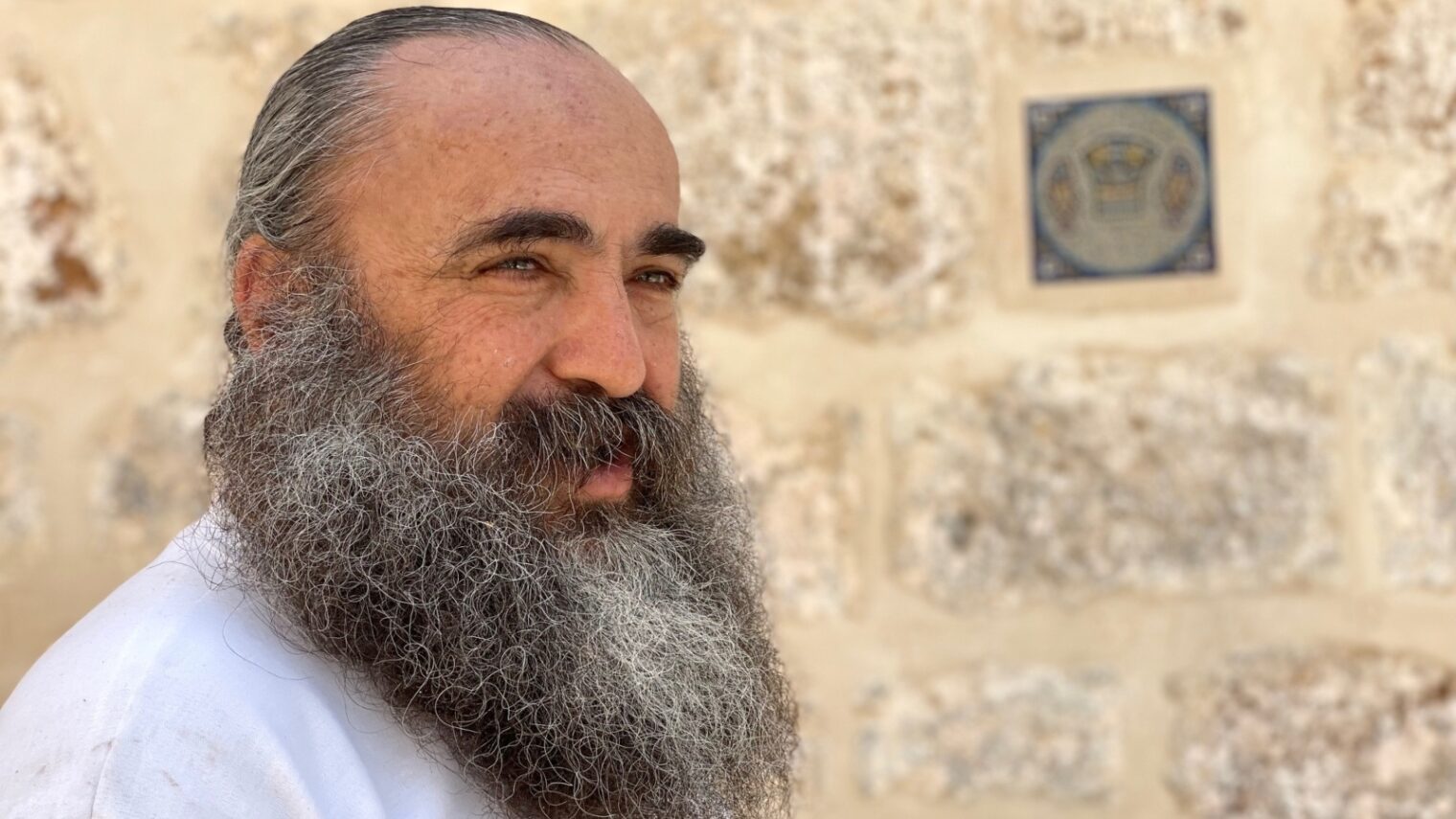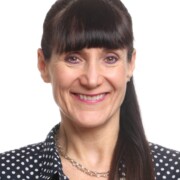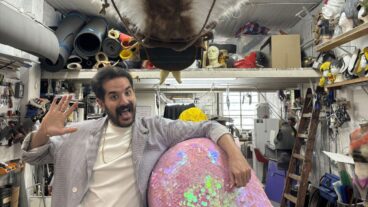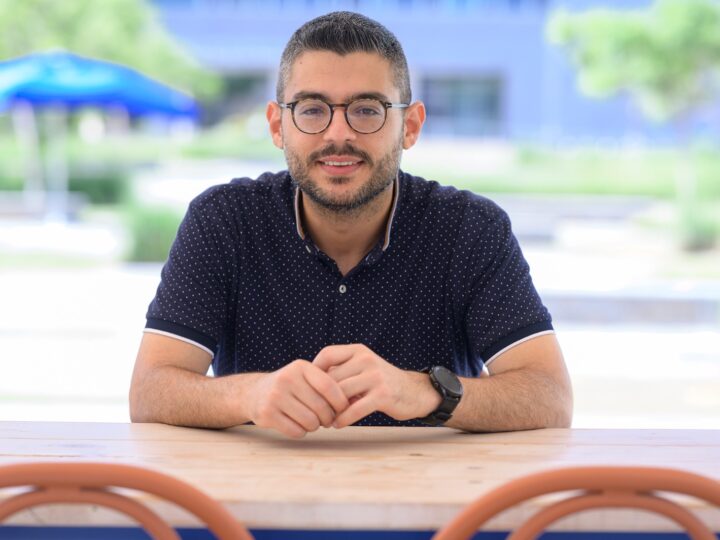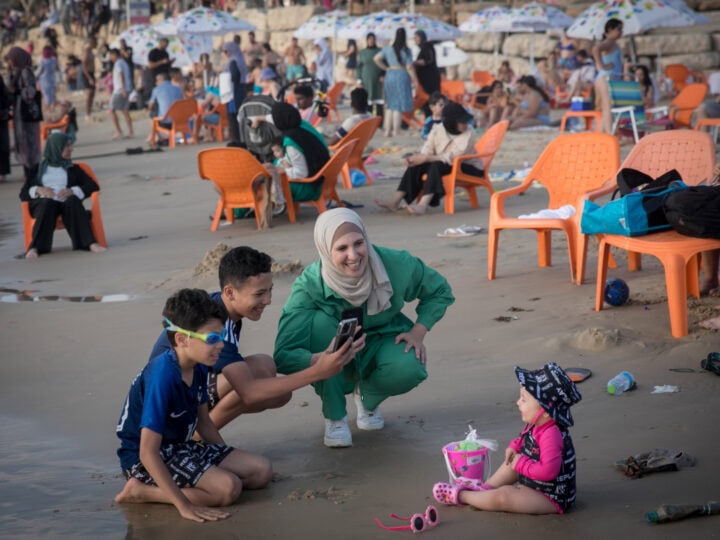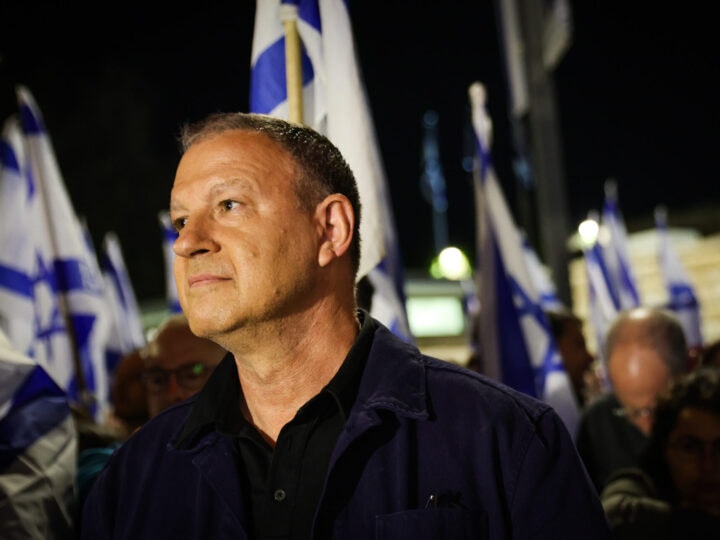He calls himself Father Philotheos, meaning “a friend of God” in Greek.
As the priest of the Greek Orthodox St. George Church in the Old City of Acre (Akko) in northern Israel, he serves 600 Greek Orthodox residents of the city as well as 30,000 people in 14 surrounding villages in the Western Galilee.
Among his congregants are also a growing number of immigrants from Russia. And when Father Philotheos isn’t leading prayer services, blessing newborn infants or giving last rites to the dying, he is busy restoring the outside of the church himself, adding decorative mosaics, shells and designs in the ancient stone walls.
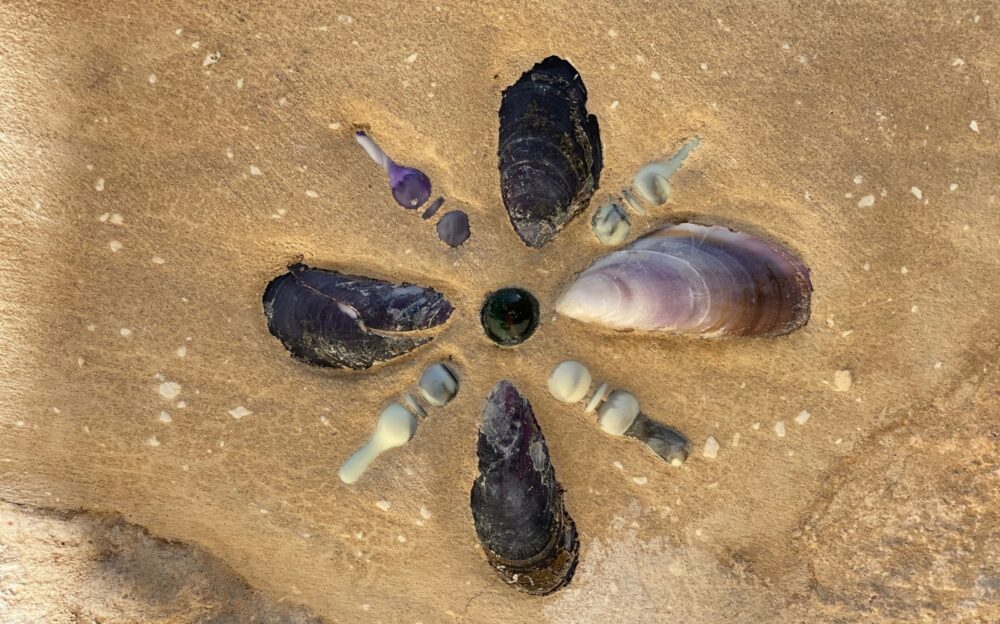
St. George Church, probably the first Christian house of worship built in Akko, dates back to 1631. A physician from Marseilles who visited the church in 1666 declared it was the most beautiful church in the Middle East.
That is where Father Philotheos has served for the past five years. The story of his journey from the island of Crete, where he was born in 1962, to Israel is his own personal pilgrimage.
Heaven on earth
When he was a young boy, he said, a bishop came from Jerusalem to visit his family’s church in Crete. After the services, the bishop asked Philotheos if he wanted to come with him to Jerusalem.
“I immediately said yes,” Philotheos said, “but my father said, ‘How can you go alone?’ I was about 11 or 12. He wanted me to stay in Crete and marry, and carry on the family name. But I was stubborn and I left.”
When Philotheos arrived in Jerusalem and stepped into the Church of the Holy Sepulcher, he said, “I felt like I had found heaven, heaven on earth.”
Philotheos stayed in a Jerusalem seminary and studied there for five years.
“I didn’t want to leave,” he said. “But after five years, I returned to Crete. Small children had grown up and old people had died. My father told me, ‘That’s enough, stay here,’ but I was accepted to the Brotherhood of the Holy Sepulcher and I returned to Jerusalem.”
Philotheos faced early challenges. “When I started my life as a priest, I thought, ‘How am I going to live among Jews and Muslims?’ I realized that I have to be okay with all people and accept their faith.’”
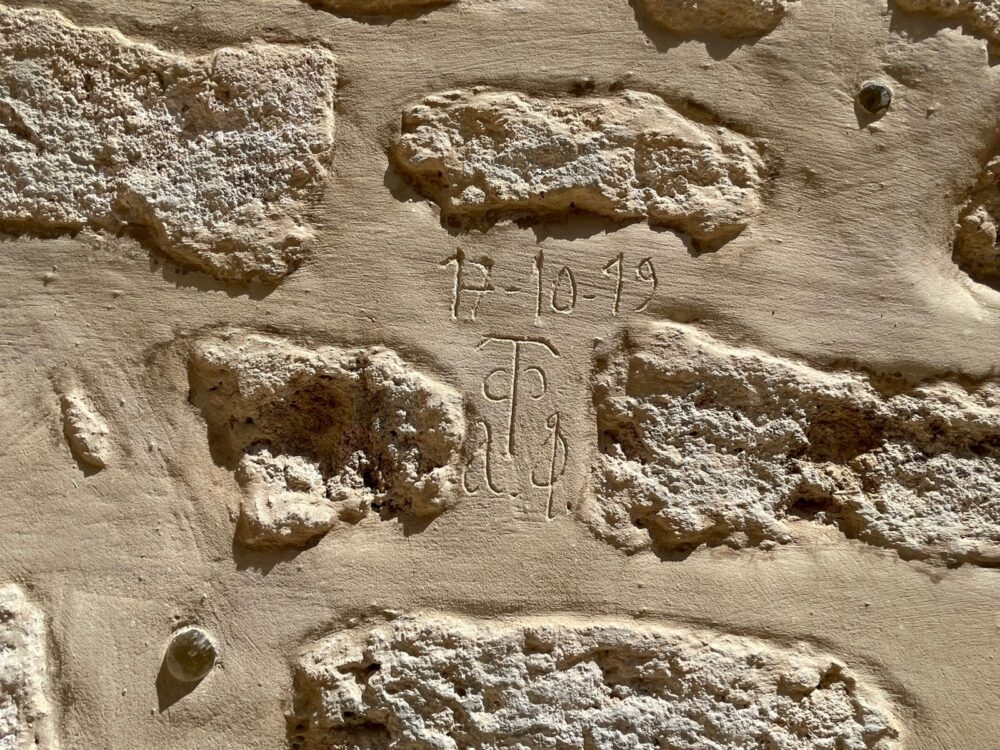
He was ordained as a deacon in 1979 and began his work. Today he is known as Archimandrite, an honorific describing a celibate priest one step below a bishop. He has served in Haifa, Bethlehem and Beit Jala.
“We are like soldiers,” he said. “We serve where we are sent.”
Restoring an old church
Over the years, Philotheos has learned Arabic and Hebrew. He speaks English and Greek and can lead prayers in Russian.
When Philotheos arrived to serve at St. George Church, he said the building was full of rubbish, “more than a balagan,” he said, using the Hebrew word for “mess.”
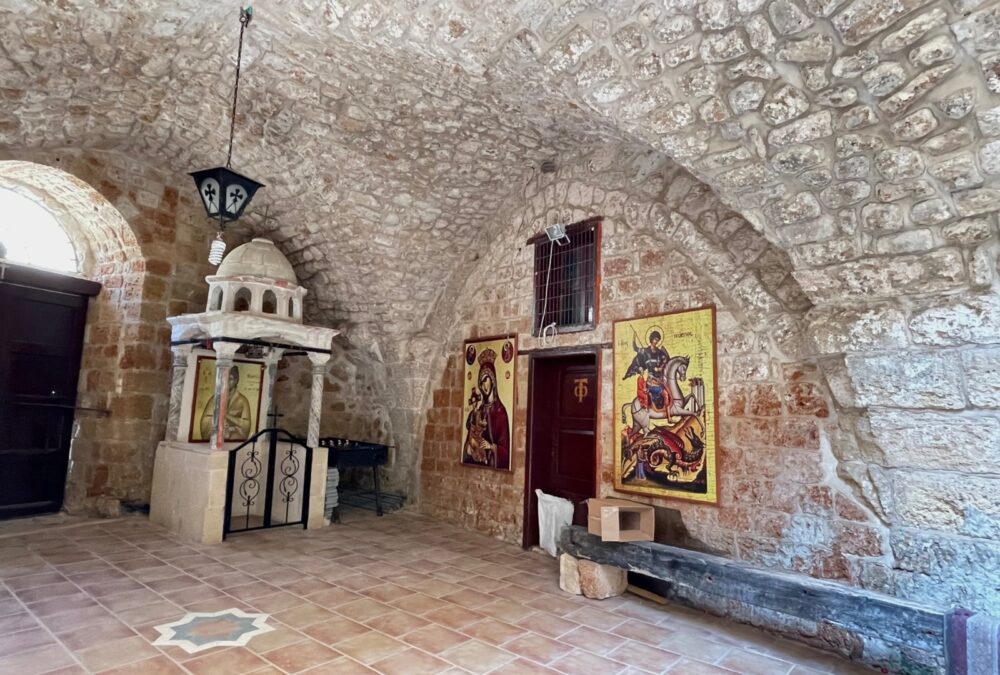
It had been used as an industrial space and there was even a rusty cotton thresher. The church bell was in such disrepair that when he tried to ring it, metal flakes came off.
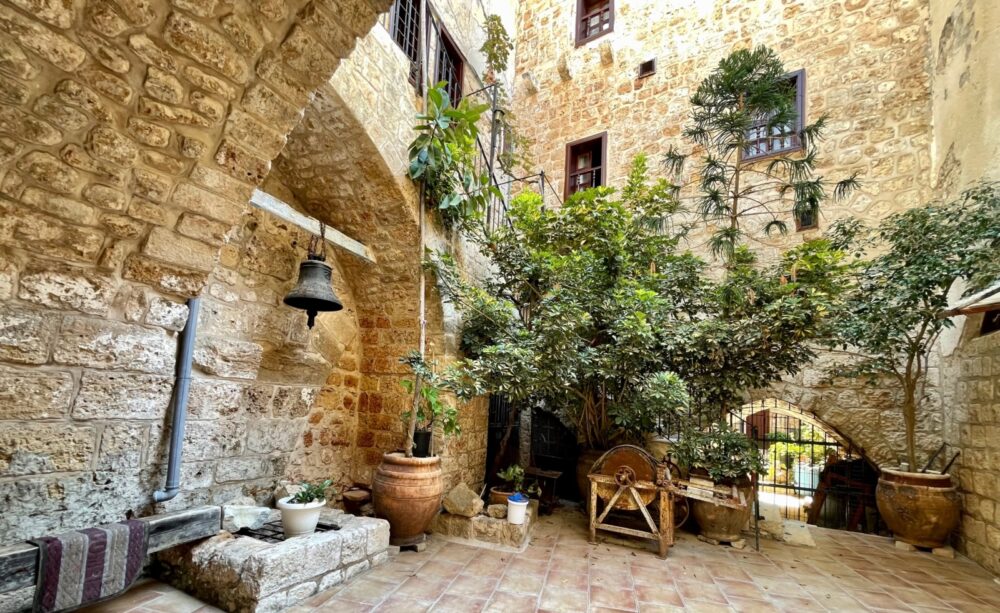
He slowly worked with a carpenter to restore the building.
Akko has a variety of faiths and Philotheos meets with the chief rabbi and sheikh of the city along with the mayor.
“We have good relations,” he said. “When we sit, we have good discussions, just not about theology. I know what I believe and I respect what they believe.”
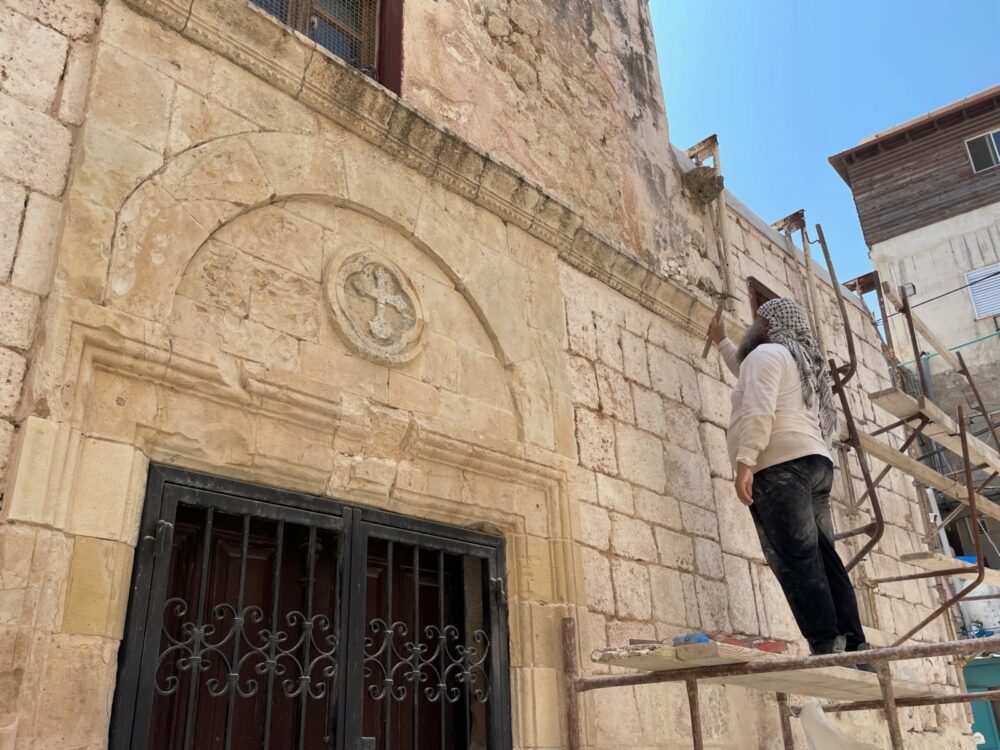
Before Covid-19, Philotheos ran a Sunday school for young people that he hopes to start again. He also teaches a class in Byzantine music, which contains eight tones, he said. “There are seven tones for the days of the week and the eighth day for the resurrection.”
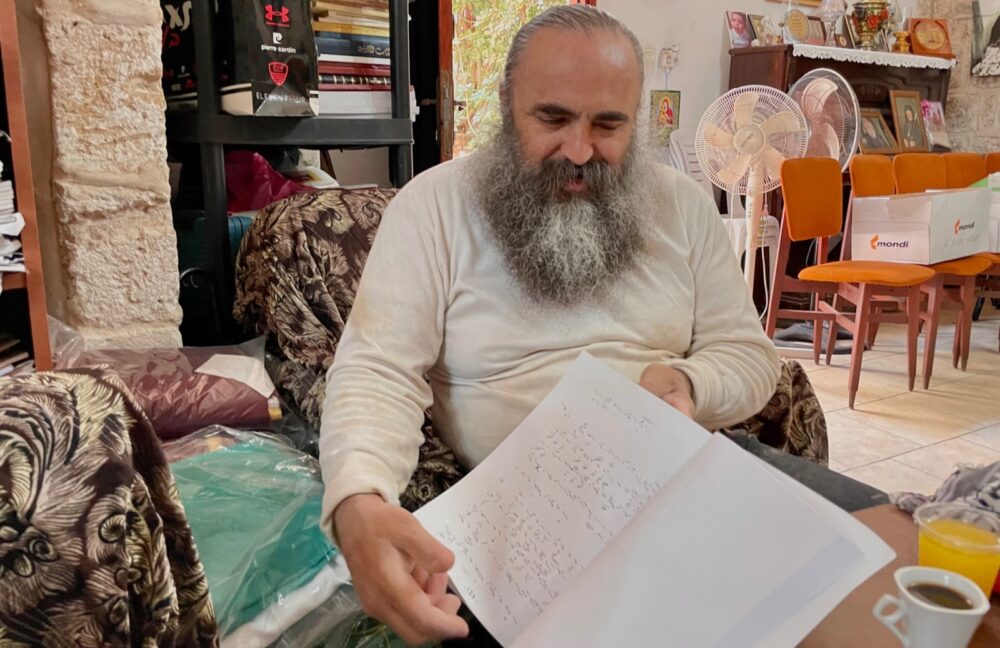
One of the community
For a while, Philotheos thought he wanted to be a monk. His superior told him it wasn’t for him, but Philotheos insisted and tried living in Wadi Kelt Monastery near Jericho for six months.
“I thought I would die,” he said wryly.
He likes to be among people, and in Akko, he said he feels at home, saying hello to passersby, greeting many by first names, as he works on the stone walls.
“I love to be one of the community,” he said. “I feel like I belong.”
He lives alone in the church building, but other priests come for services on Saturday and Sunday mornings. The Patriarch pays him occasional visits.
“Israelis have to be proud,” Philotheos said. “We are a mosaic of many communities serving one God.”
The church, he said, is open to visitors but “it isn’t for people to look around like in a museum. It is a holy place, so if you want to come in to talk to God, you are welcome.”
For further information to set up a visiting time, call +972-(0)52-813-3307.




